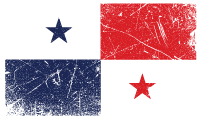

panama surfing, surfing in panama, rafting in panama, panama scuba diving
Gatun Lake and the Chagres River are ideal destinations for fishing enthusiasts looking to catch peacock bass, tarpon, snook, and other less popular fresh-water fish. With a countless number of small bays, inlets, and channels, Panama offers anglers terrific fishing opportunities, whether you're using live bait or lures. Furthermore, it's lined with lush, verdant rainforest, so the setting couldn't be better. Common sightings include howler and white-faced capuchin monkeys, iguanas, and a variety of aquatic bird species. There are two primary points of entry—Gamboa and Arenosa.
The small, quaint town of Gamboa—a 30-40 minute drive from Panama City—resides along the Panama Canal and is home to the Panama Canal Dredging Division. Just before reaching Gamboa, and before crossing over the Chagres River bridge, you'll find the Gamboa public boat ramp off to the right, which is open daily from 5:00 a.m.–6:00 p.m. The dock lacks public bathroom facilities and running water, and there are no stores nearby—the nearest store is in the town of Gamboa, a 15-20 minute walk. Along the road, just outside the gate, is a large, public parking lot where you can leave your car. The Gamboa dock is used by locals for personal use (fishing, jet skis, etc.), and by commercial outfitters offering fishing and sightseeing tours.
Fishing tours can be organized at the Gamboa public dock. Most fishing boats require a minimum of 4 passengers, so unless you arrive in a group you'll find it very expensive. Normally, fishing gear can be rented and live-bait (minnows) can be purchased. The most popular fishing spots tend to be in the area surrounding Barro Colorado Island, which resides along the Panama Canal—it takes approximately 25-35 minutes to get there depending on the boat, motor, and weather conditions. Fishing in the nearby Chagres River is also very good and much closer, for those wanting to spend less money.
The picturesque town of Arenosa is located on the western shore of Gatun Lake, approximately 1.5 hours from Panama City. The town has a few modest restaurants overlooking the lake, and a few stores where you can purchase soft drinks and other food items. The area surrounding Arenosa is both flat and open, leaving it susceptible to the wind. The fishing spots aren't nearly as secluded and sheltered as they are near Gamboa, but they're no less beautiful and peaceful—just different. Fishing rods and live bait are available upon request, but we recommend you organize your visit before arriving. Arenosa is a very small town, and while there are several locals with private boats for hire, finding them on short notice could prove difficult.
Regardless of your destination, fresh water fishing in Gatun Lake is a memorable experience and a wonderful way to spend a day during your visit to Panama. You won't be disappointed! The lake is well stocked and nobody comes back with an empty bucket.
Chiriqui, Panama's Northwestern province hosts Panama's growing sport of whitewater rafting. Due to its mountainous topography and abundance of rainfall, Chiriqui's rivers offer class III and IV commercial whitewater runs. A limited number of companies provide a variety of excursions modeled to fit the season and level of experience.
Bajo Mendez Section (Class III & III+ / 3.5 hours): Considered to be the forgiving river when compared to its counterpart, the Palon, the Bajo Mendez section consists of big water with plenty of room for maneuvering. Long-wave trains and wild scenery make this river a perfect starting point for the first-time rafter.
Barrigona Section (Class III / 2.5 hours): Perfect for beginners and families alike, the Barrigona offers a glimpse of what whitewater rafting can look and feel like. This section features a few exciting class III rapids, with the remaining stretch filled with continuously moving water that will keep you on your toes. A shorter trip, the Barrigona gives the rafter 2.5 hours of milder rafting and vistas of Chiriqui's pretty stretches of plains and gently rolling hills.
Palon Section (Class IV / 4 hours): Arguably the most beautiful and classic rapids in all of Central America, this section is only run during the low-water months of December–April. Intrepid, first-timers and seasoned rafters will undoubtedly hail this river as a world-class run with its non-stop action, technical maneuvers, deep canyon gorges, and spectacular tropical jungle scenery.
Sabo Section (Class III / 2.5 hours): Big rapids dominate the first half of the Sabo section, while the second half—lined with lush, verdant forest—levels out allowing participants an opportunity to enjoy the surrounding scenery and wildlife, which includes cormorants, kingfishers, and iguanas.